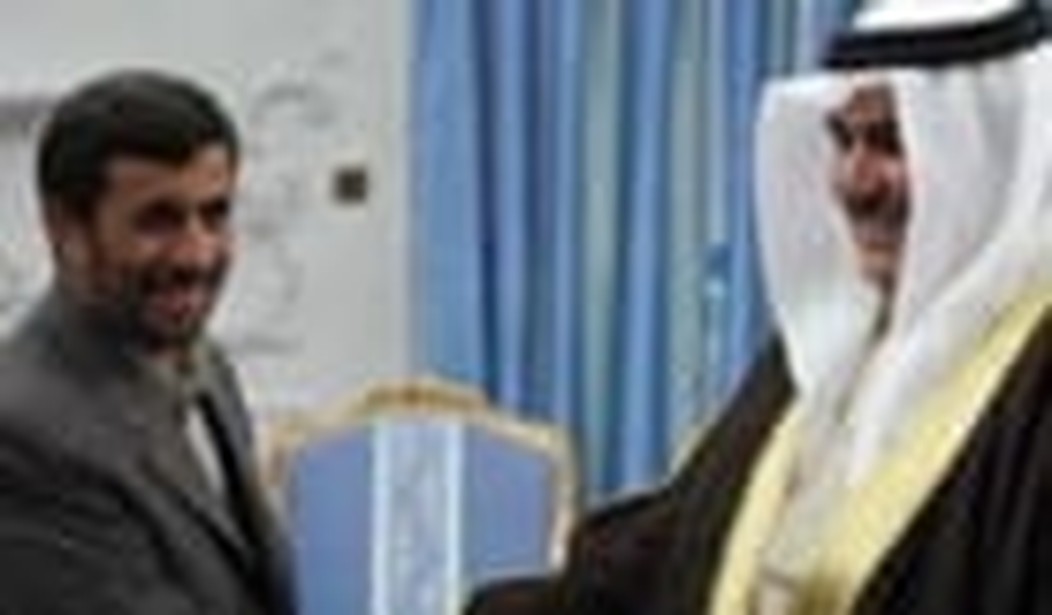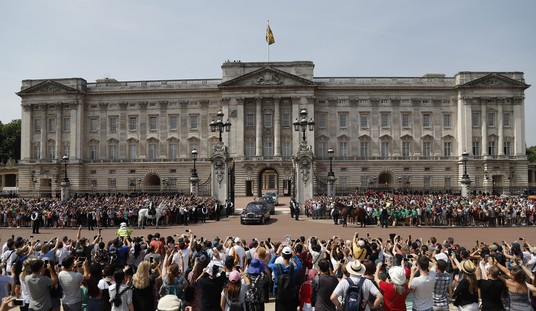Anyone who has seen the Iranian regime’s film The Coming is Near knows the Middle East is on the verge of exploding. The question is what spark will light it. The region seems to shift daily, but right now, it looks like Iran has chosen Bahrain as the place to pounce.
Iran views Bahrain as ripe for the picking. The pro-American royal family is Sunni, but about 70 percent of the population is Shiite. It faced a popular uprising that had a strong possibility of removing it from power. That uprising was only put down with brute force and intervention from Saudi and Emirati soldiers on March 14. The saving of the Bahraini government does not sit well with Iran and it is poised to wage proxy warfare in response. This would not be unprecedented, as Iran did the same thing in 2009 by supporting the Houthi rebels in their war against the Yemeni government backed by the Saudi military. ,
Hossein Naqavi, a member of the Iranian Majiles’ National Security and Foreign Policy Committee, has explicitly threatened war, declaring: “The Saudis should know for a fact that Tehran will use all the power and potentials at its disposal to halt the oppression of the people in Iran.” He said the United Nations must act to force the Saudi forces out of Bahrain or Iran will. The Shura Council also warned the Saudis that they are “playing with fire,” a remark which the Saudis meekly referred to as “irresponsible.” Now, Iranian “students” have firebombed the Saudi embassy in Tehran.
Hezbollah has offered its support for the uprising in Bahrain and the royal family is accusing the terrorist group of training some of its opponents. Hezbollah’s statement could be brushed off as rhetoric if it weren’t for the fact that a website has been registered by the Iranian government to recruit volunteer fighters to go to Bahrain and battle forces sent by the Gulf Cooperation Council. The website, which is tied to Ayatollah Mesbah-Yazdi, says it will email those who register with instructions that include “martyrdom” operations. It claims that nearly 2,000 volunteers have signed up, 60 percent of whom are from Iran and 18 percent of whom are from Bahrain. Another government-run website published a letter from Shiites in Bahrain asking for Iranian intervention.
The Iranian Revolutionary Guards Corps is said to have already dispatched armed operatives to Bahrain undercover as air marshals on Iran Air flights. On March 27, Qatar seized two Iranian ships loaded with weapons near Bahrain. These incidents have caused a rupturing in diplomatic ties between Iran and Bahrain. Secretary of Defense Gates confirms that “we already have evidence that the Iranians are trying to exploit the situation in Bahrain. We also have evidence that they are talking about what they can do to try to create problems elsewhere as well.” On April 11, Ruhollah Hosseinian, a pro-Ahmadinejad member of the Majiles, explicitly called for Iranian military intervention. “I believe that the Iranian government should not be reluctant to prepare the country’s military forces at a time that Saudi Arabia has dispatched its troops to Bahrain,” he said.
If Iran does intervene, it will work closely with its Shiite allies like Hassan Mushaima, the secretary-general of the al-Haq party. Mushaima openly says that if the Saudis came to the aid of the Bahraini royal family, then the Shiite opposition has “the right to appeal for help from Iran.” Mushaima, Iran, and Hezbollah will work hard to paint this as a sectarian struggle because of the demographics of the country, but as the Iraqi Shiite hostility to Iran shows, the Arab Shiites cannot be put in the same league as the Iranian government.
Luckily, senior members of the Democratic Alliance, which is an umbrella organization of three opposition parties, have issued a statement condemning Iranian involvement in Bahrain. The country’s largest political party, al-Wefaq, has also demanded that Iran keep out. A spokesman for its leader, Sheikh Ali Salman, said: “We have our own identity and we don’t want the Islamic Republic of Iran meddling in Bahrain. We don’t want the Velayat-e-Faqih in Bahrain,” referring to the system of governance in Iran. Remarkably, he responded to a question about the Israeli-Palestinian conflict with, “Let the Palestinians solve their own problems.” The Bahraini opposition has tried to dispel the notion that it is motivated by sectarianism and the chairman of the Bahrain Transparency Society says, “We want genuine democracy, not clerical.”
This rejection of Iranian involvement is encouraging, but that doesn’t mean that Iran won’t use the calls for help from Hassan Mushaima as an excuse to repeat what it did in Yemen in 2009. The language and actions of the Iranian government strongly indicate it is preparing for war in Bahrain. And if war happens, then the instability we’ve seen this year so far will pale by comparison.









Join the conversation as a VIP Member